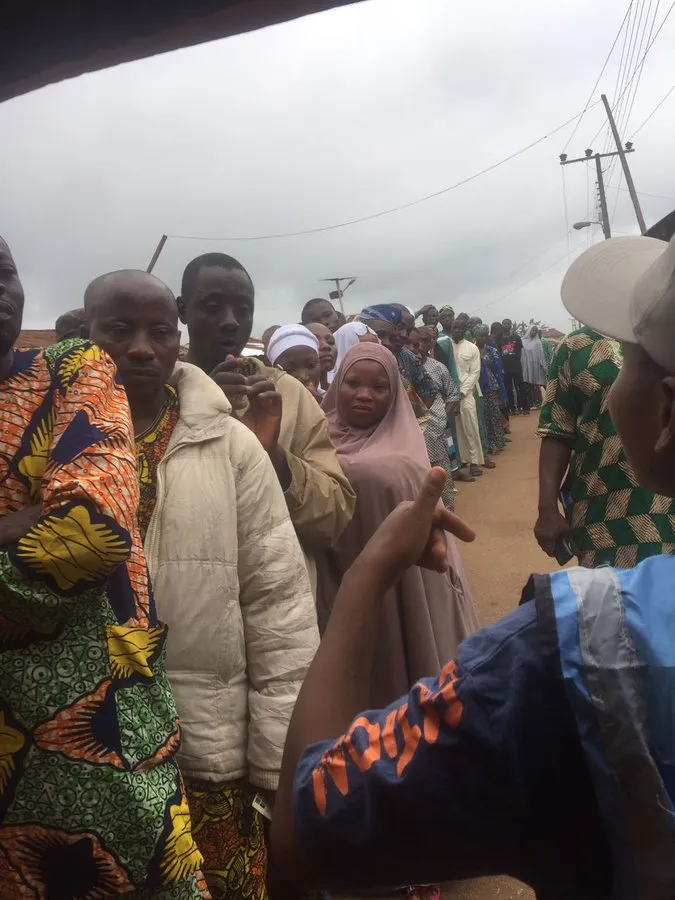The Nation
2027 : NASS considers single-day general election as INEC urges swift reforms

The National Assembly is considering far-reaching amendments to the Electoral Act, which could see Nigerians casting all their ballots—from presidential to state assembly—in a single day come 2027.
House of Representatives Speaker Abbas Tajudeen gave the hint Thursday in Abuja while hosting a delegation of the European Union (EU) Election Observation follow-up mission on the 2023 polls.
Abbas disclosed that if the proposed bill scales through and secures presidential assent, the nation may witness the conduct of presidential, gubernatorial, National Assembly, and state assembly elections on the same day.
The EU delegation, led by Barry Andrews, also visited the headquarters of the Independent National Electoral Commission (INEC), where Chairman Mahmood Yakubu warned that delays in passing the amended Electoral Act 2022 could affect preparations for the 2027 elections.
The team, which has spent about three weeks in Nigeria reviewing implementation of recommendations from its 2023 election report, also met with the Peoples Democratic Party (PDP).
READ ALSO:Prof. Amupitan tipped as replacement for INEC chairman, Mahmood Yakubu
In a statement issued by his Press Secretary, Leke Bayeiwu, Abbas assured the visitors that the National Assembly was already factoring EU recommendations into its ongoing electoral reforms.
He said: “I want to acknowledge that the leadership of the country under President Bola Ahmed Tinubu is committed to ensuring that we improve on our electoral processes, particularly regarding the observations made (by international observers) on the 2023 elections.
“We in the National Assembly have also been busy working to gather as many issues as possible, arising from the last elections, so that we can see how we can legislatively address them; so that our next election will be more transparent, acceptable and in alignment with international standards.”
According to him, a joint leadership meeting of the Senate and House recently resolved to isolate electoral matters and fast-track their passage before December.
He explained that among the fresh proposals being considered are reserved parliamentary seats for women and persons with disabilities (PWDs), constitutional roles for traditional rulers, financial autonomy for monarchs, and the adoption of a one-day election.
Abbas added that holding all elections on the same day could reduce electoral costs by nearly 40 percent while improving voter turnout and efficiency.“In our own thinking, it will help to reduce our electoral costs to as much as 40 per cent if we can hold the elections within a day. It will also improve transparency and increase efficiency, particularly on the turnout of voters,” he said.
He urged the EU to help with advocacy and sensitisation, especially at the subnational level.“One takeaway from this meeting is to take the assurance from me and my colleagues that we will not be late. We will do the needful as far as legislation is concerned to enable INEC to have all the necessary tools and provisions to make the 2027 election much better than the 2023 election,” Abbas added.
Andrews, a European Parliamentary member, congratulated the Speaker on his 60th birthday and commended the legislature’s collaboration with the EU. He expressed optimism about Nigeria’s democratic reforms but also flagged concerns about whether the amendments would be ready in time for INEC to implement before 2027.
“We have a good story to tell, frankly,” Andrews said.
At INEC, Yakubu stressed the urgency of a timely legal framework, warning that uncertainty could disrupt election planning.“We appeal to the National Assembly for an expeditious consideration of the electoral reform proposal. An early passage of law is critical to our planning for the elections,’’ Yakubu said.
He reminded the delegation that “an election is a process governed by law,” adding that the commission had already engaged the legislature on proposals requiring statutory changes.
Yakubu also highlighted the EU’s past involvement in election monitoring, noting visits in 2017 and 2022, and shared details of INEC’s review of observer recommendations from 2019 and 2023.
The INEC chief said the commission had acted on recommendations within its administrative capacity and was awaiting legislative amendments for others. He assured that preparations for 2027 would involve extensive consultation with stakeholders and international partners, including the EU, Commonwealth, AU, and ECOWAS.
In response, Andrews reiterated that election observation was aimed at strengthening democracy, not interference, but cautioned that Nigeria must quicken reforms across the judiciary, administration, and electoral transparency.




















